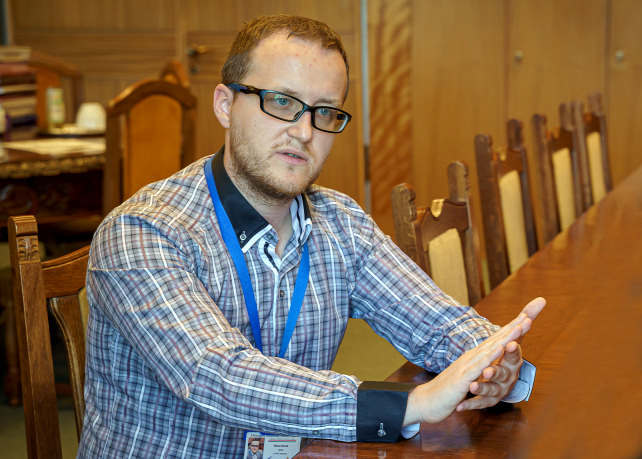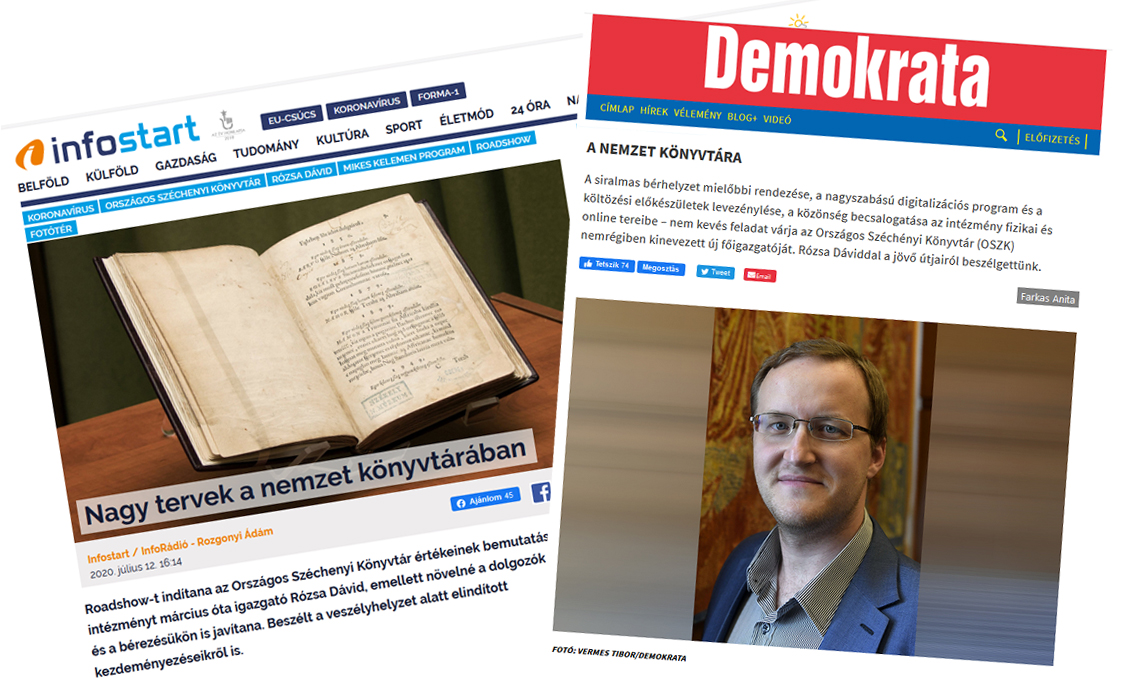
Hírek címlapon
1956 – history on leaflets
Entitled “1956 – history on leaflets”, a new, freely accessible digital content service has been launched by National Széchényi Library. The database launched on October 23, 2020 offers an ample selection of leaflets and text posters made during the 1956 Revolution and Freedom Fight.
“Hungary can be proud of its national library” – Interview with Director-General Dávid Rózsa

Source of photo: origo.hu, Csaba Talán
NSZL to launch a new digital content service entitled “Földabrosz” (Earth Cloth)

The currently launched and continuously expanding database entitled “Földabrosz” (Earth Cloth) includes approximately 1,000 digitized maps that were printed in Hungary or abroad before 1850. The majority of the maps were made in the 18th century, but the collection also includes several 17th-century editions, once owned by founder of our Library, Count Ferenc Széchényi (1754–1820).
Reader passes can be paid for by credit card in NSZL

Dear Readers and would-be Readers,
We are happy to inform you that, since August 25, 2020, National Széchényi Library has offered yet another convenience service to its readers: reader passes can be paid for not only in cash but also by credit card.
We welcome our readers who wish to renew their reader passes and also those who are newly registered!
“National Széchényi Library has a fantastic collection and staff.”– Interviews with Director-General Dávid Rózsa

In the past few weeks, several interviews appeared in the written press and in various radio broadcasts with Director-General Dávid Rózsa in connection with the current situation and future of National Széchényi Library. Below we will show you some of them.
The order interface of Mikes Kelemen Program has been renewed

The order interface of Mikes Kelemen Program, now in its seventh year, has been renewed.
Organized by the State Secretariat for National Policy, National Széchényi Library and the National Archives of Hungary, the program was launched on January 1, 2014, in line with the ideas worded in the Final Declaration of the 3rd Meeting of the Diaspora Council.








